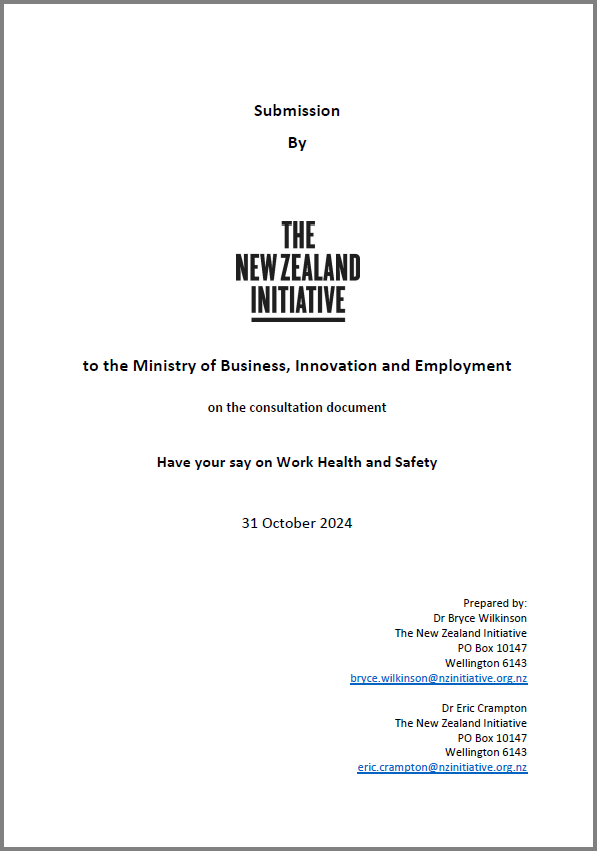1. Introduction and Summary
1.1 This submission is made by The New Zealand Initiative (the Initiative) in response to the Government's consultation document "Have your say on Work Health and Safety," released in June 2024. The Initiative is a Wellington-based think tank supported primarily by major New Zealand businesses.
1.2 We undertake research that contributes to developing a prosperous, free, and fair society with a competitive, open, and dynamic economy. We have a long-standing interest in helping governments to raise the quality of government regulation, including safety regulation.
1.3 We appreciate and support the government's intention to review and potentially improve the work health and safety regulatory system. We think it is currently far too costly and ineffectual. Technologies and better know-how are improving safety independently of regulatory actions. It is hard to say what net value, if any, the current excessive system is adding.
1.4 The Initiative is not well-placed to comment on focus areas one to four of the consultation document. Our members can better comment on these areas individually should they wish to do so. This submission focuses instead on area five - "the objective of the work health and safety regulatory system”.
1.5 We recommend that the government moves to allow a greater role for individual employers and employees to contract between themselves for the trade-offs between safety and pay, but this should be in the context of greater reliance on strengthened private law remedies for negligence, fraudulent deceit and the like, with an enhanced role for private insurance. In other words, we recommend that the balance between directive government regulation, ‘no-fault’ ACC, tort law and private insurance needs to be shifted at the margin at least from the former to the latter.
1.6 Government should, of course, monitor this system, provide relevant safety information as a public good, and continue to take full responsibility for public health matters such as contagious illnesses and for the safety of infrastructure that it controls, such as roads.







